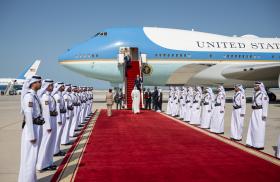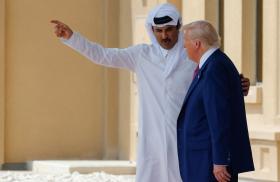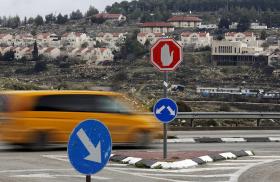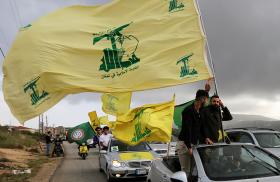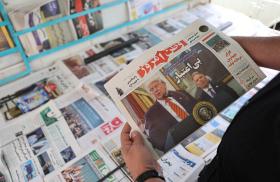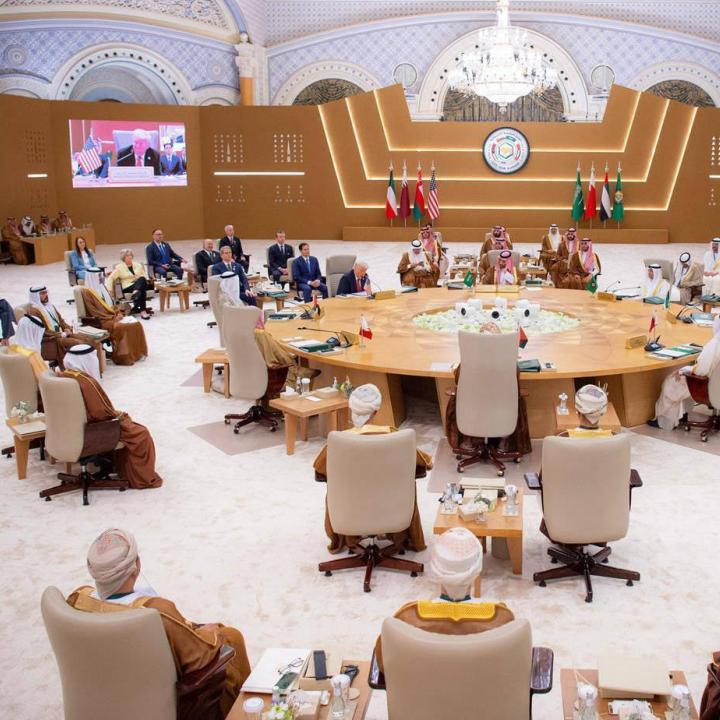
- Policy Analysis
- Interviews & Presentations
President Trump's Gulf Trip: Meeting the GCC on Day Two

Part of a series: President Trump's 2025 Gulf Trip
or see Part 1: President Trump's Gulf Trip: Previewing the Agenda
In this third of several daily videos from Washington Institute scholars, David Schenker examines the implications of discussions at the Gulf Cooperation Council summit in Riyadh on the second day of President Trump's May 2025 trip to the Gulf region.
On Wednesday, May 14, President Trump met with leaders of the Gulf Cooperation Council in Riyadh. The King of Bahrain and Emirs of Qatar and Kuwait were the only actual monarchs to attend. A development more likely related to Gulf politics and protocol than a slight to the president. More important than the substance of the meeting, of which few details have emerged, is the symbolism. The gathering was intended to represent Washington and the administration's ongoing economic and security commitment to the Gulf.
The media has not yet reported on what these Gulf states conveyed to the president. The president's speech, however, was televised. Trump discussed his much, publicized the decision the day earlier to lift the crippling sanctions on Syria to give the new al-Sharaa government a chance. Trump also indicated that he was exploring normalizing relations with the new Syrian government.
The president did not advocate for a Palestinian state. Instead, he backed a future of safety and dignity for the Palestinian people, a situation requiring the removal of Hamas.
Trump was bullish on Lebanon. He described the current developments there as a once-in-a-generation opportunity to forge a Lebanon that's prosperous and at peace with its neighbors, if the state was free from Hezbollah terrorists.
Finally, the president discussed ongoing U.S. negotiations with Iran. “I want to make a deal”, he said. But in addition to ending its pursuit of nuclear weapons, he added that Iran must stop sponsoring terror and halt its bloody proxy wars. The addition of the new U.S. requirement for an agreement with Iran, if Trump actually means it, is significant, it’d dramatically strengthen any deal and stabilize the region in an unprecedented manner. Iranian proxy militias destabilize Lebanon, Syria, Iraq, Yemen, and Gaza. If the proxies become a stipulation of the agreement, it would be a game changer. It would also dramatically complicate reaching an agreement.
There's still a gap related to what the six member states of the GCC said at the meeting. Business and dealmaking dominated the headlines of Trump's Saudi visit, and likely constituted a major element of the trips to UAE and Qatar. It's all but certain, though, that contentious issues were avoided and that the interventions focused on enhancing relationships and making deals.
Trump holds an unprecedented view of a new Middle East as a region of opportunity and possibility. “Incredible opportunities are within reach for this region. If we can simply stop the aggression from a small group of bad actors,” he said. The GCC states are closely aligned with Trump's regional vision, which focuses almost exclusively on economic development, de-escalation, and the avoidance of war.

